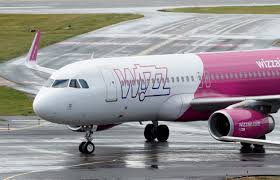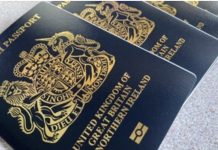Airlines have run up millions of pounds in County Court Judgments (CCJs) after failing to pay passenger expenses and refunds.
The consumer organisation Which? found CCJs collectively worth more than £4.5 million have piled up against airlines including EasyJet, Ryanair, Tui and Wizz Air, according to official records. Wizz Air accounts for almost half the total amount, despite carrying fewer passengers than some of its rivals.
Which? believes the shocking scale of these figures highlights how the enforcement of air passenger protections is fundamentally flawed – with airlines empowered to ignore their legal obligations due to weak regulation and a dysfunctional dispute resolution system failing to help travellers enforce their rights. The government has outlined plans to enhance the Civil Aviation Authority’s powers, but much-needed aviation reforms have been delayed repeatedly.
Wizz Air has 1,601 ‘outstanding’ CCJs worth almost £2.2 million, according to Registry Trust, which maintains the official statutory register of judgments, orders, and fines for England & Wales on behalf of the Ministry of Justice.
The register also shows that both EasyJet and Ryanair have high numbers of ‘outstanding’ judgments. EasyJet has 884, amounting to £611,436 and Ryanair has 840 worth £549,892. Tui has fewer, at, 313, but they are worth almost £1.3 million. Easyjet told Which? it now has no known unpaid CCJs and that the register has not been updated to reflect its current position. Trust Online, the official register of court judgments, told Which? that: ‘Even when a judgment is paid, the judgment will continue to show as ‘unsatisfied’ until the court records are updated.’ It said defendants – airlines in this case – are responsible for providing updates about the payment status of CCJs.
Which? Recommended Provider Jet2 has four ‘outstanding’ judgments amounting to £1,434. Meanwhile, BA has 82 totalling £96,042.
Which? has spoken to Wizz Air customers who had flights cancelled by the airline, but struggled to claim a refund. Russell Quirk’s flight to Portugal for his family was cancelled by Wizz Air without explanation three hours before they were due to take off.
Wizz Air had a legal obligation to reroute him as soon as possible, but instead suggested that he book himself on to a new flight and promised to refund him. He paid for a last-minute BA flight for his family of five that cost £2,500 – and incurred other out of pocket expenses as a result of the change. Although Wizz Air refunded the original flight – after several weeks of chasing – it failed to reimburse his expenses.
The airline didn’t respond to the case he brought through the small claims court. Mr Quirk was therefore awarded a judgment by default, but still did not get his money. In October 2022 he had to instruct court bailiffs. The bailiffs visited Wizz Air at Luton Airport and finally forced the airline to pay him more than £4,500, including costs, in December – seven months after his original flight.
Which? also heard from a WizzAir passenger who was failed by a voluntary dispute resolution scheme for air passengers when he tried to escalate a claim for a cancelled flight. Mattia Zenere had a flight booked with Wizz Air in June 2022 but was told that his flight had been cancelled when he arrived at the gate. He received no further confirmation of the cancellation, or explanation of why it was cancelled from WizzAir, and was forced to book a night in a hotel and a new flight himself from another airport, costing almost £800.
Wizz Air failed to refund him or pay his expenses, so he escalated his claim to AviationADR, which initially ruled that he should get a refund for the flight, but not his expenses. When he queried this it sent him a second ‘final determination’ that he should get expenses but not a refund. When he also queried this it sent him a third ‘final determination’ that he was entitled to nothing – as the flight had never officially been cancelled. However, Which? has seen an email from Wizz Air to another passenger, booked on the same flight, saying that it was cancelled and confirming a refund.
AviationADR ultimately closed Mr Zenere’s case and stopped responding to his emails. As a result, he says he regrets not going straight to court. Wizz Air has since said it is re-investigating Mr Zenere’s case, after Which? sent it evidence that other passengers were told that the flight was cancelled.
Which? believes the CAA must take a tougher stance with airlines that fail to pay passengers the money they are owed and make clear that it will use all the powers it currently has at its disposal, including its economic regulation powers. Particularly in the case of Wizz Air, which has previously been warned by the CAA over its record as the worst airline for complaints and its large number of unpaid CCJs, the regulator should consider carrying out a formal review to establish whether the requirements of its licence to operate in the UK have been breached. Ultimately, the CAA has the power to suspend or revoke an airline’s licence.
The CAA must also be more transparent with the data it holds for airlines and be more effective at seeking information – making it publicly available and naming and shaming the poorest performers.
To avoid a repeat of these industry-wide breaches of consumer law in the future, Which? is also calling for the government to prioritise giving the CAA the powers and resources it needs to directly fine airlines and hold them accountable to ensure they comply with the law.
The failing alternative dispute resolution (ADR) system must be reformed by mandating membership to all airlines operating in the UK and by establishing a single statutory-backed ombudsman in this sector. Currently, multiple industry schemes compete for airline contracts, creating incentives for them to favour the airline rather than the consumer.
Rocio Concha, Which? Director of Policy and Advocacy, said:
“The scale of court judgments piling up against major airlines is a result of a system where the odds are stacked against passengers and airlines feel empowered to routinely ignore their legal obligations to pay out refunds and compensation.
“The CAA must get tough with airlines and make clear that it will consider using all the powers at its disposal – which may include reviewing the licences of the worst offenders if appropriate.
“To avoid a repeat of this mess in future, the government must also prioritise reforms that put passengers first, which means giving the regulator powers and resources to require information from airlines as to their compliance with the law and to directly fine rogue operators that do not comply.”







